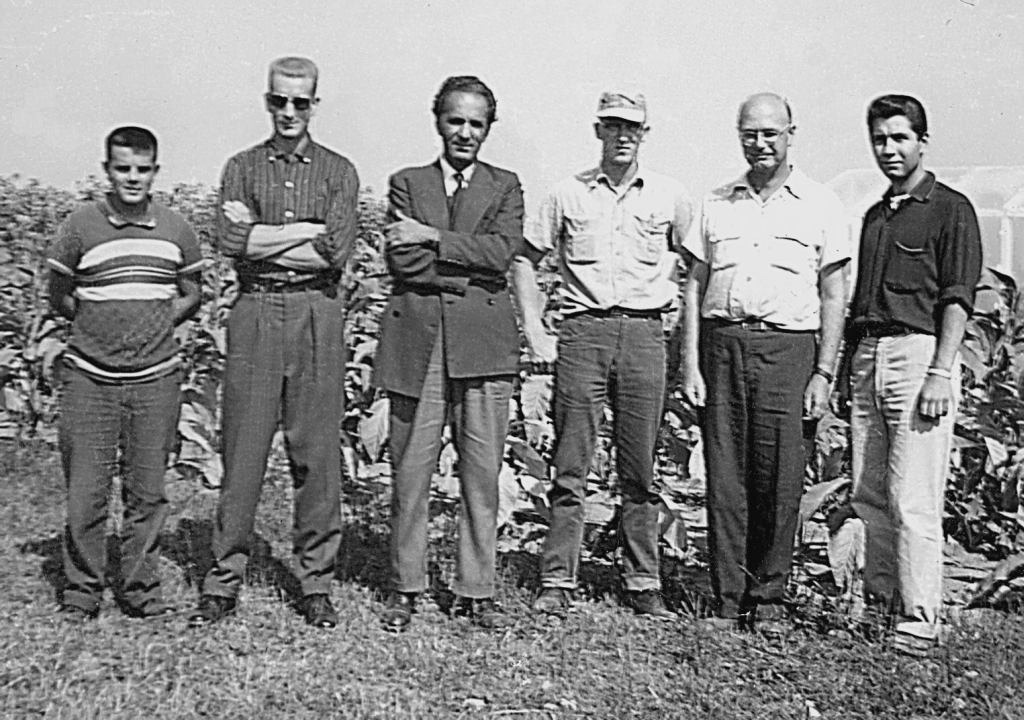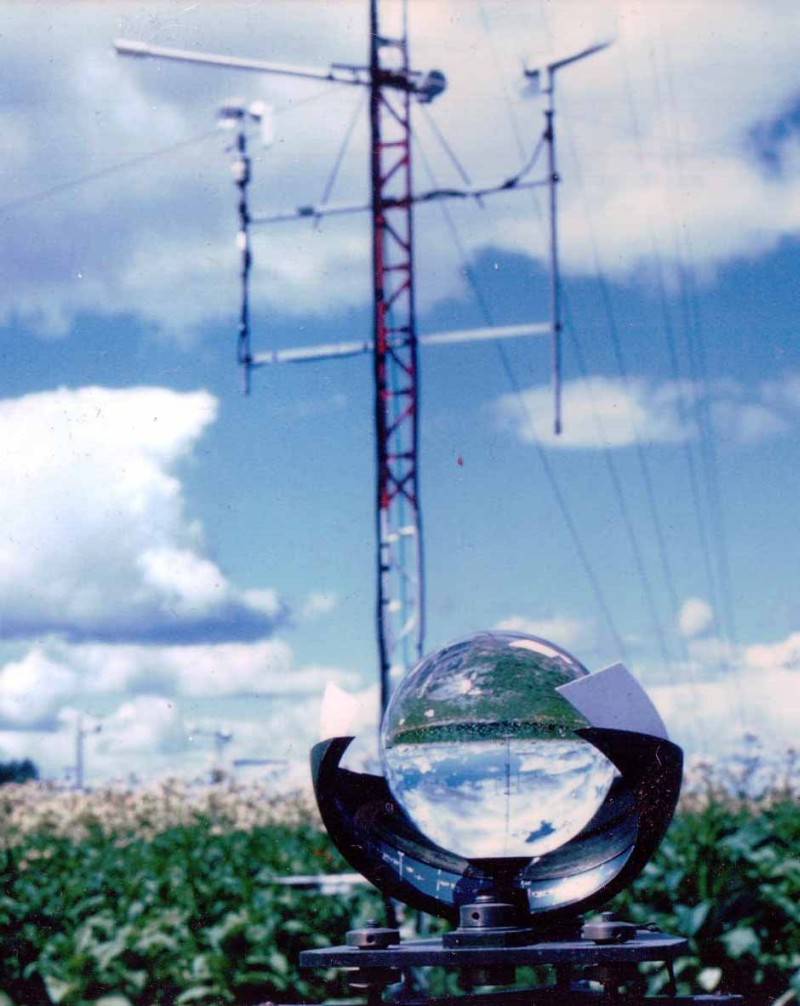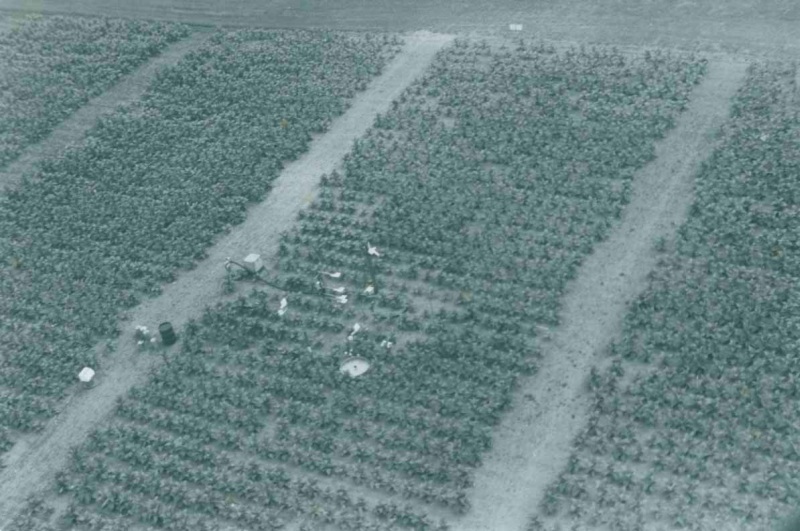
left to right: Ken Devine, Paul Jay, Eli I Mukammal, Fred Stevenson-Francis, Howard Cork, George Derco.

The Tobacco Fleck Project went on for about four years at Port Burwell. The tobacco leaves were developing a blight which reduced the value of the product. Eli Mukamal was able to show (possibly for the first time) that it was caused by pollutants from the Cleveland area. The pollutants were transported in the mid-tropopause and then deposited on the leaves by the lake breeze circulation.
The work at Port Burwell was a major project with additional teams from Dept. of Health and the Atomic Energy of Canada as well as Agriculture Canada. There were about ten people on site. There was every type of instrument you could imagine: tethersonde, radiosondes, lysimeter, radiation, ozone and other gas detectors, low and high level wind and temperature profiles, dew gauges, and there were about five climate stations which ranged up to 30 miles inland and a tower in lake Erie. All provided much data to be analyzed.
The people in the picture were the met
staff which reported to Eli. There was one person seconded from Atomic
Energy (Paul Jay) and an electronic technician (Fred Stevenson-Francis).

Instrumentation
in Field

Overhead
View